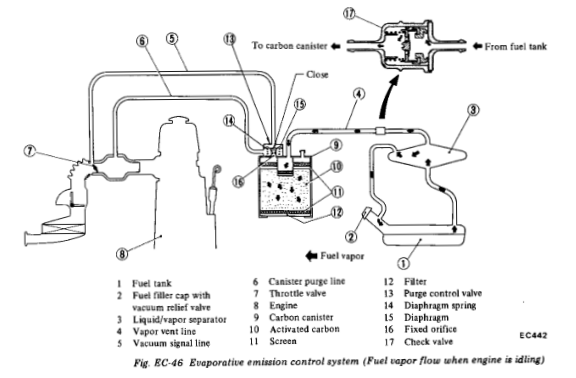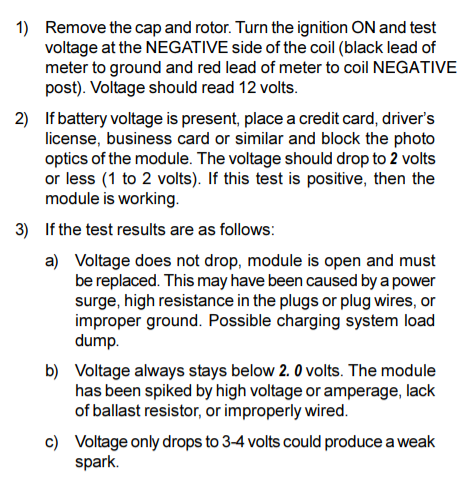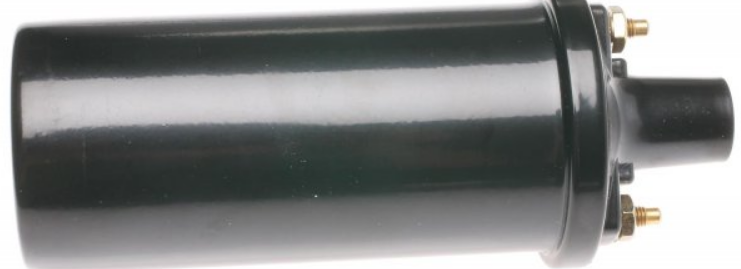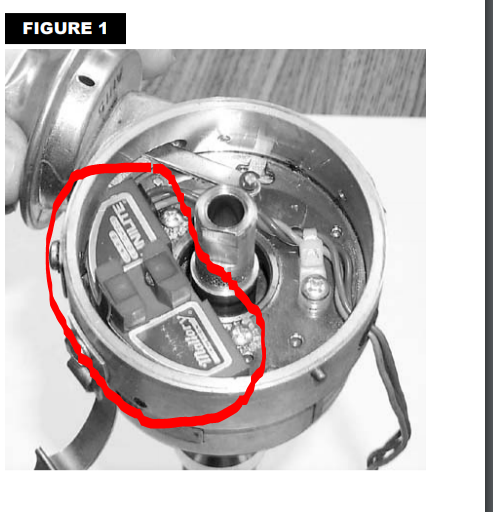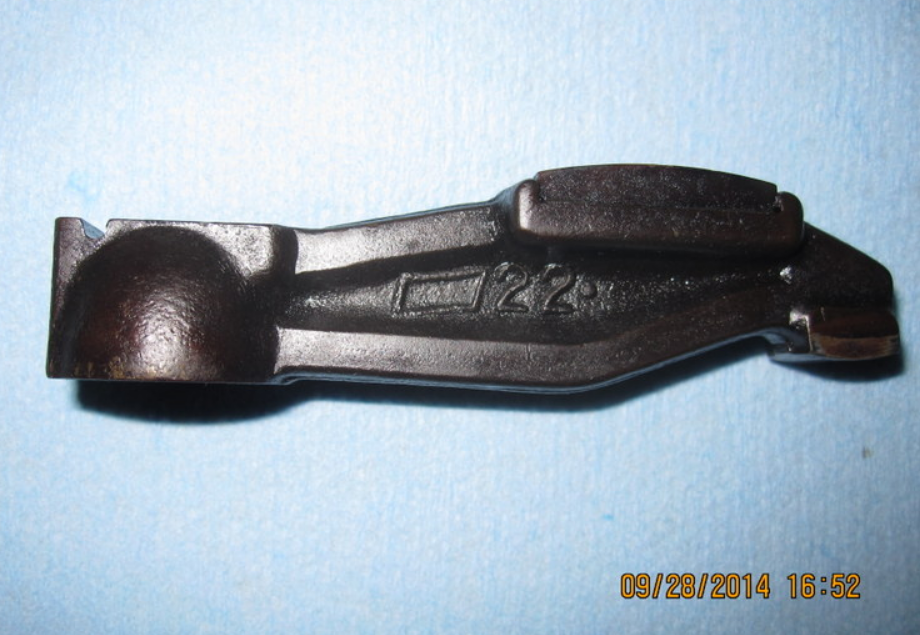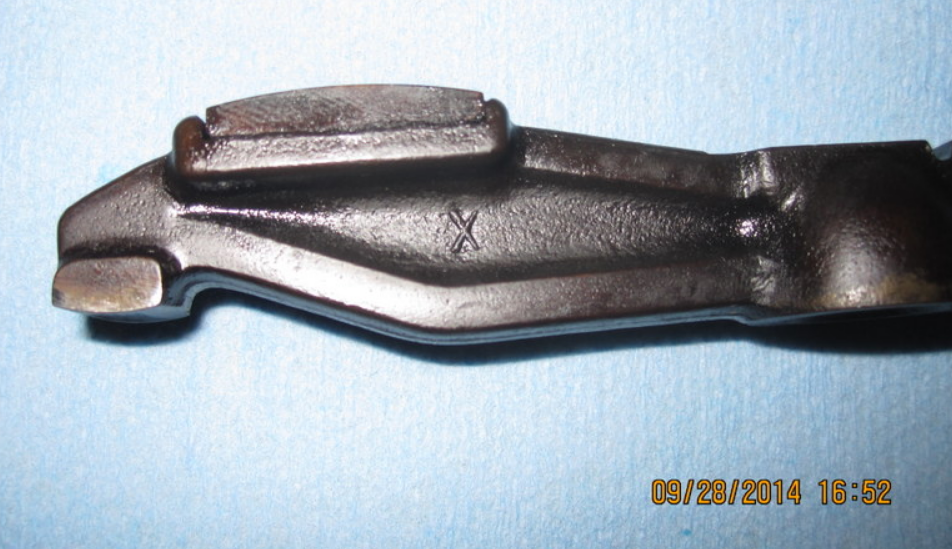Everything posted by Zed Head
-
Misfiring while cruising
Another quick test of the wires would be to swap 2, 3, or 4 for any of the clean cylinders. It might be a stretch because the wires are custom fit but should be doable. Or just buy a single new plug wire and replace 3 or 4. If it's the wire, the problem will follow the wire. You're in to the process of elimination now.
-
Misfiring while cruising
That is a great picture. It shows a lot. We might all ponder the various causes of fouling for a short while. As I recall from much past experience with poor running engines, a fuel fouled plug often looks like 3 and 4 here, but then when it fouls, it gets wet with fuel. And it fouls quickly and the carbon coat is not so smooth. These plugs look fairly dry, and the other plugs look almost lean, like they're not even close to fuel fouling. Weak spark fouled plugs typically look wet also, like they were wet from the beginning of missed sparks. These plugs look like they were firing well, with a good even coat of sooty carbon on everything exposed, until the spark started shorting to ground through the carbon. In short, they look like they had great spark until they didn't. #2 (or maybe #5) looks like it is fouling also. But the other three look very clean. Considering how the carbs and manifolds are set up it doesn't seem like it could be a fuel problem, unless fuel is running down the intake runners and in to those cylinders. Is that possible? Is there a path for raw fuel in to the center runners? If he parks the car on a slant so the fuel runs away from the cylinders would that be a clue? If the spark is good and the fouling is fuel or oil related, and fuel is discounted, that leaves oil. Which could be rings or valve seals. It could also be valve lash, possibly, causing poor combustion. Just some thoughts on other possible causes. On situations like this, I tend to go around in a big circle on all of the possible causes until one wins. There's definitely a cylinder specific problem though, which narrows the possibilities down.
-
Misfiring while cruising
What is the idle speed of the engine? Engines with performance cams do better with a higher idle RPM.
-
Misfiring while cruising
Reply to Mark in #86 - I meant giving up on looking at all six. That would have made the 3 and 4 problem more clear. Which is why it was asked. Jalex's problem on the forum has always been that he doesn't do what people ask him to do. You asked for the other four and he only gave you one. Should have had a picture of all six in a row two days ago.
-
Misfiring while cruising
And #5 could be a lean misfire. Who knows.
-
Misfiring while cruising
Could be valve seals too. Weird that you guys gave up on "all 6" and accepted the addition of #5 as close enough. ? #1 is somewhat difficult but 2 and 6 are wide open.
-
Where is the Fuel Vapor Check Valve Located
I wouldn't do the vacuum cleaner again. The motors are not sealed and could ignite fumes. Some pressure in the tank is not a bad thing. The system is designed to be sealed to the ambient atmosphere, to keep gas fumes in, and moisture out. Both ends are spring-loaded, with a spring in the check valve and a spring in the vacuum relief valve in the filler cap. Your fuel rail works on pressure differential so doesn't even know that the tank has pressure. If it was mine, I'd be happy to have some pressure. My filler cap vacuum relief gasket is shot so I don't get any whoosh, and I'm sure that my carbon canister isn't getting the workout it should. Sounds like everything is working right with your system. You could take a look under the car at the tank to see if the tank is bulging. If it's not, the pressure probably isn't very high. The whoosh might be more volume than pressure.
-
Where is the Fuel Vapor Check Valve Located
I think it's behind the panel. But you might check the end of the vent line in the engine bay, where it connects to the carbon canister, before you go too crazy. It might be clogged or blocked there. You should be able to suck some gas fumes through the hose after you disconnect it from the canister.
-
No spark, where to start?
Just going through the basics, the next question might be "why would a functioning module not create a spark?". Does the distributor shaft turn when you crank the engine? Does the bottom of the rotor have the optics blocking part intact? Was there anything loose under the cap when you took it apart that might have been blocking the optics? Another common ignition module problem is that they overheat, fail, then come back to life when they cool down. You might find that the engine starts now if you put it all back together. Your testing shows that it should work. Edit - forgot to say...other parts can overheat also. Coils, wire connections, maybe the ballast resistor. If it starts then dies again you'll be farther down the troubleshooting path.
-
Misfiring while cruising
This is the old fuel percolation problem from way back, I think. Never got solved. How hot was it on Sunday?
-
No spark, where to start?
Coincidentally, one of the old Unilite threads just popped back up. It's a floater. https://www.classiczcars.com/forums/topic/60072-misfiring-while-cruising/?page=2
-
No spark, where to start?
That's right. The test described in that pdf file I linked to will tell you a lot though, for much less money than a $150 scope.. Can you take a picture of your distributor and engine bay? Might be some clues there.
-
alternator rebuilding-78 280Z
The FSM, even 1978, has excellent instructions for tearing down and testing the parts. Looks like fun. I tore one down but found that one of the big diodes was bad and couldn't be sourced. Held on to the parts for a while but eventually threw them in the recycle bin. I'm pretty sure that a person could buy most of the rebuild parts in the past. Probably find some NOS on eBay. (Shouldn't it be old new stock? ONS?)
- 76 280z Restoration
-
No spark, where to start?
Actually, I just read the Unilite instructions, and depending on where your probes were placed and how fast you moved, you might have been close to the proper test procedure. I think that the module times out after a short time though, so you have to have it open as shown, and use the optics blocking technique to get consistent results.
-
No spark, where to start?
-
No spark, where to start?
The ignition module is under the distributor cap. The coil would be the cylindrical object with two wires attached, and a center wire that attaches to the distributor cap.
-
Rust Advice 78 280z
Angle of the car plays a factor. Water just flows downhill. You said that you opened the passenger door but didn't say that the water was only under the passenger seat. Anyway, my car had a leaky windshield seal. It leaked in to the channel between the window and the seal from the outside, then flowed to other spots and leaked back out on the inside. I realized what was happening when I saw water beading up at the inside corner of the seal and leaking in when I cornered.
-
1971 HLS30-14938 "Lily" build
See if a shaving will dissolve in MEK. Solvent bonds are very strong. If it does dissolve then you can make your own adhesive from ABS or a similar MEK-soluble plastic. Like site described for repairing a console.
-
OFFICIAL 280Z "Fuel Damper" thread!
Pretty common for that to be caused by the FPR.
-
No spark, where to start?
Edit - plus I think that you're measuring voltage incorrectly for what you're trying to do. But still, there should be no voltage drop unless current is flowing. Voltage should be battery voltage unless current is flowing. There shouldn't be any current flowing unless the engine is running. 3.3 volts implies that your ignition module is shorted out. The bouncing tach needle is another sign. There are some threads on the site about the Unilite modules. You can get replacements. And here is a test procedure for the Unilite. Not exactly your model but they're all the same. http://documents.holley.com/605_v2.pdf
-
240Z Dual Weber 32/36 Carbs: Problems starting when warm
- My Rockers seem to be a little off, or I'm off my Rocker(s)
Third to last post here has pictures of my original 1976 rocker arms. They have the trapezoid. http://forums.hybridz.org/topic/118926-engine-woes-read-on-if-you-dare/?tab=comments#comment-1122036 Here's one.- My Rockers seem to be a little off, or I'm off my Rocker(s)
I started a thread on rocker arms a few years ago over on Hybridz. Haven't clicked through the links again so don't know how many are good. http://forums.hybridz.org/topic/119576-rocker-arms-state-of-the-situation/- My Rockers seem to be a little off, or I'm off my Rocker(s)
I'm just posting for fun so don't get mad. You're still talking about appearance, not function. Big picture, when you do things that don't really need doing you often end up with a whole new set of problems. So, estimate time needed to get the work done then double or triple it, and the cost. You might flatten your cam lobes, for example. Do you want to drive it or have a picture of nice looking parts that you almost never see? - My Rockers seem to be a little off, or I'm off my Rocker(s)
Important Information
By using this site, you agree to our Privacy Policy and Guidelines. We have placed cookies on your device to help make this website better. You can adjust your cookie settings, otherwise we'll assume you're okay to continue.





